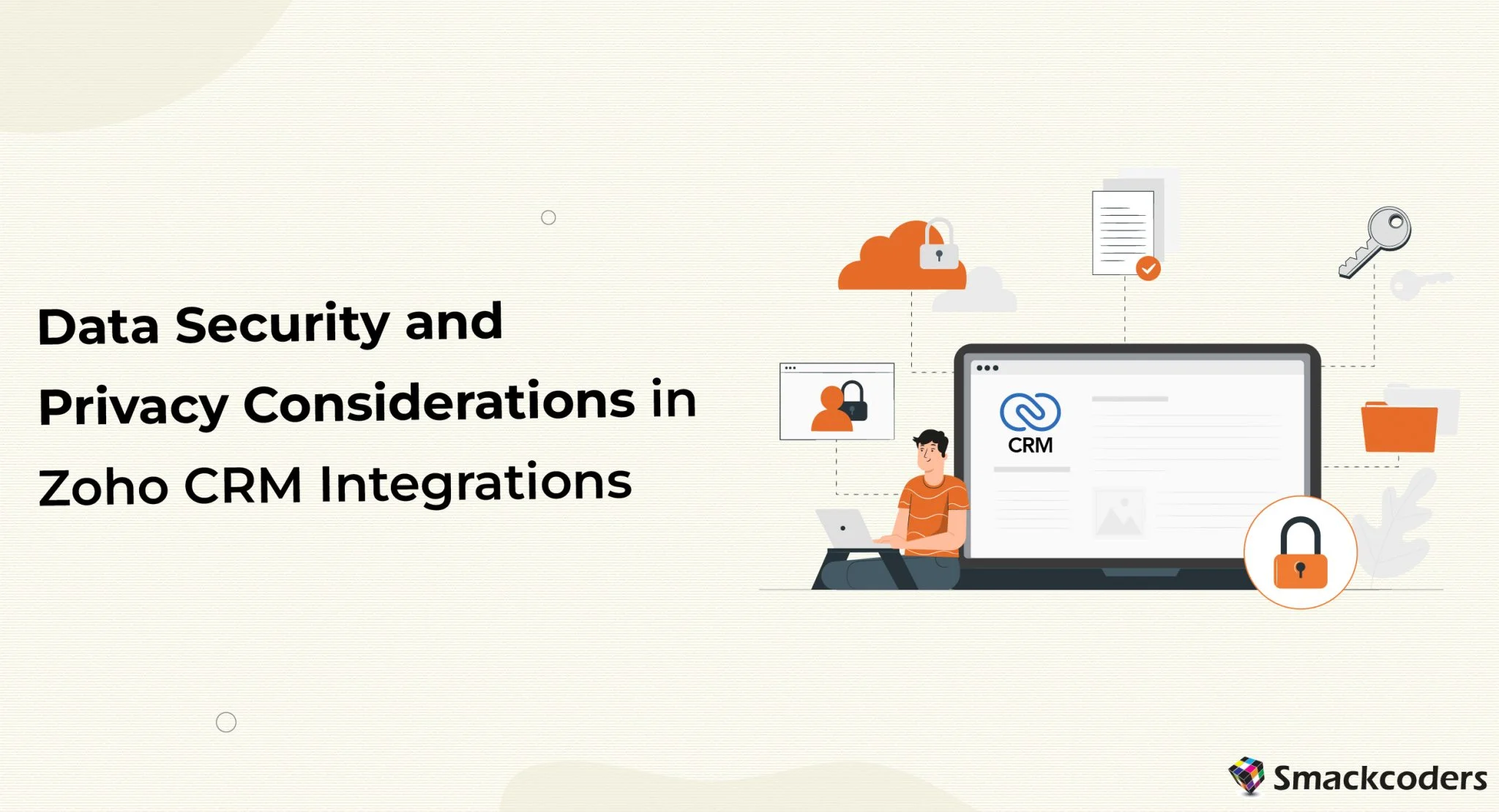
Data security and privacy are critical aspects to consider when integrating Zoho CRM into your business operations. In this article, we will explore the importance of safeguarding sensitive information, the potential risks associated with data breaches, and the measures you can take to ensure the security and privacy of your data within Zoho CRM integrations.
The Significance of Data Security
Effective data security measures are vital for businesses that handle sensitive customer information. With the integration of Zoho CRM, it becomes even more crucial to protect the data stored within the system. Data breaches can lead to severe consequences, including financial loss, damage to reputation, and legal implications.
Zoho Data breach- Risks of Data Breaches
Data breaches pose significant risks to businesses, especially those integrating Zoho CRM. Some of the potential consequences include:
Loss of Customer Trust
A data breach can erode customer confidence in your organization’s ability to protect its information. This loss of trust may result in customers seeking alternative providers.
Financial Implications
Data breaches can result in financial losses due to potential legal actions, regulatory fines, and the cost of remediation efforts.
Reputational Damage
News of a data breach can quickly spread, tarnishing your company’s reputation. A damaged reputation can be difficult and time-consuming to make right.
Risks of Data Breaches
Implementing robust data security measures is crucial to protect your sensitive information within Zoho CRM integrations. Some of the basic steps to consider are listed here.
- Strong User Authentication
Require complex passwords and enable two-factor authentication to ensure only authorized individuals can access your Zoho CRM system.
- Data Encryption:
Encryption plays a significant role in data protection. Utilize encryption protocols to safeguard data against unauthorized access.
- Regular Data Backups:
Perform routine backups of your Zoho CRM data to prevent data loss in the event of a breach or system failure. Store backups securely to avoid additional vulnerabilities.
- Restricted User Access:
Grant access privileges on a need-to-know basis. Limiting user access to sensitive information minimizes the risk of unauthorized data exposure.
- Employee Training:
Train your employees on data security best practices, including recognizing phishing attempts, creating strong passwords, and handling sensitive information with care.
One of the most essential ways a business can promote privacy is by facilitating knowledge and conversation among employees on the significance of confidentiality, along with the appropriate ways of handling customer data. This means recognizing the special dangers faced by the business and establishing procedures to address them. To prove that the commitment to privacy is genuine, it is critical that the words are backed up by actions. Demonstrate your dedication to privacy by taking steps to make a secure and private environment.
Enhance customer relationships via privacy
People feel strongly about their privacy and they want companies to recognize that. To show that you respect their concerns, it is essential to demonstrate that you are willing to be forthcoming about how you handle personal data. This shows that you are conscious of their needs and prioritize their security, creating a bond of trust with customers which will make them more likely to work with you.
Integrating Zoho CRM with third-party applications
Integrating Zoho CRM with other applications is a powerful way to automate important business processes. It can help increase efficiency, reduce manual tasks, and provide insight into customer interactions. However, for successful integration, it is absolutely essential that data security and privacy considerations are taken into account. Data security is particularly important when it comes to customer information, which often includes financial and private details.
To ensure that this information is kept secure, businesses must meticulously design their data security strategy. This includes verifying data access permissions, applying strong encryption, and setting up a secure connection between the integrated apps. Another important step is ensuring that all data processing activities comply with customer privacy regulations.
For example, GDPR-compliant companies must take into account Customer Privacy Notices, contact visibility settings, and user consent when processing personal data. Zoho offers powerful tools for managing these requirements, such as default fields, field-level permissions, and access management devices.
Bottom line
Finally, data usage policies must be in place. This means that all data processing activities should be clearly outlined and specified in the data usage agreement. Companies should be drafted carefully to ensure the safety and security of all customer information. As such, data security and privacy considerations are key components of a successful Zoho CRM integration. Companies must ensure that their integrations are secure and compliant with all customer privacy regulations.
When integrating Zoho CRM into your business operations, it is vital to consider data security and privacy. By implementing strong user authentication, data encryption, regular backups, restricted user access, and providing employee training, you can significantly reduce the risks associated with data breaches. Prioritizing data security and privacy will not only protect your business but also instill trust in your customers, resulting in long-term success.
Taking the time to craft a well-thought-out data security strategy is essential for protecting customer data and ensuring successful automation.